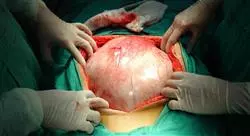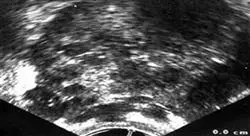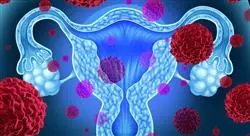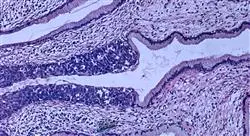University certificate
The world's largest faculty of medicine”
Why study at TECH?
Healthcare professionals must continue their training throughout their careers to make more accurate diagnoses"
The aim of this Postgraduate certificate in Tumors of the genito-urinary tract is for students to learn the appropriate concepts and international diagnostic criteria for the correct diagnosis and staging of ovarian malignant neoplasms, following the classification of the World Health
Organization (WHO/IARC 4th Edition, 2014) and the International Federation of Gynecology and Obstetrics (FIGO).
In this way, specialists will be able to update their knowledge of the tools necessary to carry out an effective and personalized differential diagnosis for each patient. Also included is the study of prostate and seminal vesicle pathologies, with the aim of training professionals with solid knowledge in Uropathology, which will contribute to a better understanding of the etiopathogenesis and pathophysiology of the disease and to improve its treatment.
This Postgraduate certificate in Tumors of the genito-urinary tract offers the possibility of specializing in the treatment of cancer in the urinary and genital apparatus, both male and female, in order for specialists to acquire the necessary skills to treat oncological diseases that develop in these apparatuses.
The training will allow the development of competencies, skills and abilities for the performance of the profession, taking into account that the patients are children who require different attention and treatment than adults.
This is the best training you can get to stay up to date on the latest developments in the treatment of tumors of the genito-urinary tract"
This Postgraduate certificate in Genito-Urinary Tumors contains the most complete and up-to-date scientific program on the market. The most outstanding features of the University Course are:
- The development of several case studies presented by experts in tumors of the genito-urinary tract
- The graphic, schematic, and eminently practical contents with which they are created provide scientific and practical information on the disciplines that are essential for professional
- The latest news on Tumors of the genito-urinary tract
- Practical exercises where self-assessment can be used to improve learning
- Special emphasis on innovative methodologies in genito-urinary tract tumors
- Theoretical lessons, questions to the expert, debate forums on controversial topics, and individual reflection assignments
- Content that is Accessible from any Fixed or Portable device with an Internet Connection
This Postgraduate certificate may be the best investment you can make in the selection of a refresher program for two reasons: in addition to updating your knowledge in Genito-Urinary Tumors, you will obtain a Postgraduate certificate issued by TECH Global University"
It includes in its teaching staff professionals belonging to the field of genitourinary tumors who pour into this training the experience of their work, in addition to recognized specialists belonging to reference societies and prestigious universities.
The multimedia content, developed with the latest educational technology, will provide the professional with situated and contextual learning, i.e., a simulated environment that will provide an immersive training program designed to train in real situations.
This program is designed around Problem Based Learning, whereby the professional must try to solve the different professional practice situations that arise during the course. For this purpose, the specialist will be assisted by an innovative interactive video system created by renowned experts in the field of genitourinary tumors with extensive medical experience.
Enhance your professional performance and improve your patients' quality of life"
Take the opportunity to learn about the latest advances in Genito-Urinary Tumors and improve the health of your patients"
Syllabus
The contents structure has been designed by the best professionals in genito-urinary tract tumors, with an extensive experience and recognized prestige in the profession, backed by the volume of cases reviewed, studied and diagnosed, and with extensive knowledge of new technologies applied to anatomopathological diagnosis.
This Postgraduate certificate in Genito-Urinary Tumors contains the most complete and up-to-date scientific program on the market"
Module 1. Cancer General Aspects. Risk Factors
1.1. Introduction
1.1.1. Overview of Malignant Neoplasms
1.1.1.1. Nomenclature
1.1.1.2. Features
1.1.1.3. How Metastases Spread
1.1.1.4. Prognostic Factors
1.1.2. Epidemiology of Cancer
1.1.2.1. Incidence
1.1.2.2. Prevalence
1.1.2.3. Geographical Distribution
1.1.2.4. Risk factors
1.1.2.5. Prevention
1.1.2.6. Early Diagnosis
1.1.3. Mutagenic Agents
1.1.3.1. Environmental
1.1.3.2. Work
1.1.3.3. Toxic Substances in Food
1.1.4. Biological Agents and Cancer
1.1.4.1. RNA Virus
1.1.4.2. DNA Virus
1.1.4.3. H. pylori
1.1.5. Genetic Predisposition
1.1.5.1. Genes Linked to Cancer
1.1.5.2. Susceptibility of Genes
1.1.5.2.1. Breast Tumors
1.1.5.2.2. Lung Tumors
1.1.5.2.3. Thyroid Tumors
1.1.5.2.4. Colon Tumors
1.1.5.2.5. Skin Tumors
1.1.5.2.6. Bone Tumors
1.1.5.2.7. Pancreatic Tumors
1.1.5.2.8. Neuroblastoma
1.1.6. Clinical Aspects of Malignant Neoplasms
1.1.6.1. Introduction
1.1.6.2. Basic Principles
1.1.7. Staging of neoplastic disease
1.1.7.1. Introduction
1.1.7.2. Update
Module 2. Molecular Basis of Cancer
2.1. Introduction to the Molecular Basis of Cancer
2.2. Genes and the Genome
2.2.1. The Main Cell Signaling Pathways
2.2.2. Cell Growth and Proliferation
2.2.3. Cell Death. Necrosis and Apoptosis
2.3. Mutations
2.3.1. Types of Mutations. Frameshift; Indels, Translocations, SNV; Missense, Nonsense, CNV, Driver vs. Passenger
2.3.2. Mutagens
2.3.2.1. Biological Agents and Cancer
2.3.3. Mutation Repair Mechanisms
2.3.4. Mutations with Pathological and Non-Pathological Variants
2.4. Major Advances in Precision Medicine
2.4.1. Tumor Biomarkers
2.4.2. Oncogenes and Tumor Suppressor Genes
2.4.3. Diagnostic Biomarkers
2.4.3.1. Resistance
2.4.3.2. Prognosis
2.4.3.3. Pharmaco-Genomics
2.4.4. Cancer Epigenetics
2.5. Main Techniques in the Molecular Biology of Cancer
2.5.1. Cytogenetics and FISH (Fluorescence In Situ Hybridization
2.5.2. DNA Extract Quality
2.5.3. Fluid Biopsy
2.5.4. PCR as a Basic Molecular Tool
2.5.5. Sequencing, NGS
Module 3. Tumors of the Genito-Urinary Tract
3.1. Ovario (Dr. María Serrano)
3.1.1. Epidemiology
3.1.1.1. Hereditary Ovarian Cancer
3.1.2. Classification
3.1.2.1. Updating and Concepts
3.1.2.2. Epithelial Ovarian Tumors
3.1.2.3. Pathogenesis
3.1.2.4. Histological Subtypes
3.1.2.5. Immunohistochemistry
3.1.2.6. Molecular Characteristics
3.1.3. Ovarian Stromal Tumors
3.1.3.1. Histological Subtypes
3.1.3.2. Immunohistochemistry
3.1.3.3. Molecular Characteristics
3.1.4. Ovarian Germ Cell Tumors
3.1.4.1. Histological Subtypes
3.1.4.2. Immunohistochemistry
3.1.4.3. Molecular Characteristics
3.1.5. }Immunotherapy
3.1.5.1. The Role of the Pathologist in Therapeutic Targets for Ovarian Cancer
3.2. Vulva (Dr. Sara Soto)
3.2.1. Precursor Lesions of Vulvar Carcinoma
3.2.1.1. New Terminology
3.2.2. Types of Vulvar Epithelial Carcinomas
3.2.2.1. Update
3.2.3. TNM/FIGO Classification
3.2.3.1. Update
3.2.4. Other Malignant Neoplasms
3.3. Uterus (Dr. Sara Soto)
3.3.1. OMS Classification
3.3.1.1. Update
3.3.2. Types of Uterine Epithelial Carcinomas
3.3.2.1. Immunohistochemistry
3.3.2.2. Molecular Aspects
3.3.3. Uterine Sarcomas
3.3.3.1. Update
3.3.4. Other Malignant Uterine Neoplasms
3.3.4.1. Update
3.3.5. TNM/FIGO Classification
3.3.5.1. Update
3.4. Prostatic and Seminal Vesicle Pathology. Dr. Josefa Herrero)
3.4.1. Prostate Histopathology
3.4.1.1. Non-Tumorous Lesions
3.4.1.2. "Premalignant" Lesions
3.4.1.3. Malignant Prostate Lesions
3.4.2. Seminal Vesicle Neoplasia
3.4.3. General Aspects of Histological Processing, Histochemistry, and Immunohistochemistry
3.4.4. Basis of Prostate Molecular Pathology, Precision Medicine, and Quality
A unique, key, and decisive Training experience to boost your professional development”
Postgraduate Certificate Course in Genito-Urinary Tumors
The Postgraduate Certificate in Genito-Urinary Tumors is a specialized training for medical professionals involved in the treatment of patients with cancer in the genito-urinary tract. Cancer patients are patients with a significant medical complexity, so they need multidisciplinary care by different health professionals. Constant updating in scientific advances is essential to offer more effective diagnoses and treatments and to improve the quality of life of patients. This program focuses on the study of genito-urinary tumors, a pathology that affects an important part of the population and whose diagnosis and treatment requires a high level of specialization. During the program, students will learn the latest advances in diagnostic techniques and treatment of genito-urinary tumors, such as prostate, bladder or kidney cancer.
Improve the treatment of your oncology patients.
The program focuses on practical and theoretical teaching for the management of patients with genito-urinary tumors. Topics such as initial patient assessment, diagnosis, the different treatment techniques available, such as surgery, radiotherapy and chemotherapy, and the necessary follow-up measures to ensure treatment efficacy will be addressed. One of the main objectives of the Postgraduate Certificate in Genito-Urinary Tumors is to train students to work as a team and collaborate with other medical specialists to provide multidisciplinary care and improve the quality of life of patients. Students will have the opportunity to work alongside oncologists, radiologists, urologists, nurses and other healthcare professionals, learning to coordinate and optimize patient treatment. In conclusion, the Postgraduate Certificate in Genito-Urinary Tumors is essential training for medical professionals seeking to improve their knowledge and skills in the diagnosis and treatment of tumors of the genito-urinary tract.











